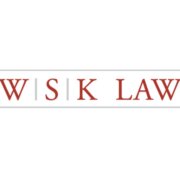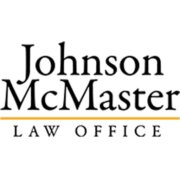Best Foreclosure Lawyers in Cambridge
Share your needs with us, get contacted by law firms.
Free. Takes 2 min.
Free Guide to Hiring a Real Estate Lawyer
List of the best lawyers in Cambridge, Canada
About Foreclosure Law in Cambridge, Canada
Foreclosure is a legal process that allows a lender to take ownership of a property when the borrower fails to keep up with mortgage payments. In Cambridge, Canada, foreclosure laws are determined by both federal and provincial legislation, and in Ontario, the process can take different forms, most commonly via power of sale or judicial foreclosure. The process typically begins after a borrower defaults on their mortgage agreement, leading to a series of legal steps through which the lender may eventually sell the property to recover the money owed. Homeowners facing foreclosure should understand their rights and the procedures involved to protect their interests and explore potential remedies.
Why You May Need a Lawyer
Legal help is essential in foreclosure situations due to the complexity of property law and the severe consequences of losing a home. Common reasons people in Cambridge, Canada might seek advice from a foreclosure lawyer include:
- Receiving a foreclosure or power of sale notice from a lender
- Having difficulty communicating or negotiating with a bank or mortgage lender
- Needing to understand the court process or documents served
- Seeking alternatives to foreclosure, such as refinancing or a repayment plan
- Alleging that a lender has not followed the correct legal process
- Resolving disputes regarding outstanding arrears or payments demanded
- Protecting equity in the property or navigating a sale to avoid foreclosure
- Dealing with possible eviction after a foreclosure
A lawyer can help clarify your rights, explain your options, negotiate with lenders, and represent you in court if necessary.
Local Laws Overview
In Cambridge, Ontario, two main legal processes are used when a lender seeks to recover unpaid mortgage debt: power of sale and judicial foreclosure. Power of sale is most common in Ontario and allows a lender to sell a property after providing adequate notice, without court intervention, provided the mortgage contract allows for it. Judicial foreclosure, a rarer process, requires court involvement and can result in the lender becoming the owner of the property. Both processes must adhere to the Ontario Mortgages Act and other relevant legislation. Provincial law requires that homeowners receive adequate notice before any sale, that the property is sold for fair market value, and that any surplus funds are returned to the borrower after debts are paid.
It is also important to note that timeframes and procedures can vary depending on the mortgage terms and the specific nature of the default. Courts can become involved if there are disputes over the process or if judicial foreclosure is pursued, making it vital to understand the legal deadlines and remedies available to homeowners.
Frequently Asked Questions
What is the difference between power of sale and foreclosure in Cambridge, Canada?
Power of sale allows the lender to sell the defaulted property without court action, provided proper procedure is followed. Foreclosure is less common and involves the court awarding ownership of the property to the lender. Power of sale is typically faster and is the most frequent process in Ontario.
How long does it take for a lender to foreclose on my home?
The process can vary, but the lender must give notice to the homeowner, usually allowing at least 35 days to bring the mortgage current before proceeding with a sale. The entire process, from default to sale, can take several months.
Will I be notified before my home is foreclosed or sold?
Yes. Lenders are required by law to provide written notice and a period to remedy the default before any sale or foreclosure action can take place.
Can I negotiate with my lender to stop foreclosure?
Often yes. Many lenders are open to discussing options such as repayment plans or mortgage restructuring to avoid foreclosure. Legal assistance can improve your chances of negotiating a favorable resolution.
What happens to my equity if my home is sold through power of sale?
If the property is sold for more than the remaining mortgage balance and associated costs, the borrower is entitled to receive the surplus funds after the mortgage and any related costs are paid.
Can I stay in my home after foreclosure proceedings start?
You may stay in your home during the notice and redemption period. After the sale or transfer of ownership, you may be required to leave, though there may be opportunity for negotiation or further legal action in special circumstances.
Do I have to go to court during the process?
Not necessarily. In most power of sale cases, there is no need to attend court unless there is a dispute or the lender pursues judicial foreclosure, which involves the courts.
Can the bank or lender pursue me for additional money if the sale does not cover my debts?
In a power of sale, if the sale does not cover the full mortgage debt, the lender may seek the balance (called a deficiency) from you, subject to the terms of the original mortgage contract and applicable laws.
Can I stop a foreclosure if I pay the amount I owe?
Yes. You typically have the right to redeem your property by paying the outstanding amount (including arrears, interest, and costs) any time before the sale is finalized.
What can I do if I feel my lender is not following the legal process?
You should seek legal advice immediately. If you believe the lender is not adhering to legal requirements, a lawyer can help you challenge the process and protect your rights.
Additional Resources
There are several resources available to residents of Cambridge, Canada who need guidance or support with foreclosure matters. These include:
- Ontario Ministry of the Attorney General - Provides information on mortgage and foreclosure processes
- Law Society of Ontario - Lawyer referral service for finding qualified legal professionals
- Legal Aid Ontario - Offers legal assistance for eligible individuals facing financial hardship
- Community Legal Clinics - Local clinics may provide advice or representation to those in need
- Credit Counselling Services - For advice on managing debt to avoid foreclosure
Next Steps
If you are facing foreclosure or believe you may soon fall behind on mortgage payments in Cambridge, Canada, it is important to act promptly. Start by gathering all relevant documents, including your mortgage agreement, notices from the lender, and a record of your payments. Consider contacting a legal professional who specializes in real estate or foreclosure law to assess your situation and guide you through potential solutions. You may also want to reach out to local legal clinics or organizations for support and information. Acting early, understanding your rights, and obtaining appropriate legal advice are key to protecting your home and securing the best possible outcome for your case.
Lawzana helps you find the best lawyers and law firms in Cambridge through a curated and pre-screened list of qualified legal professionals. Our platform offers rankings and detailed profiles of attorneys and law firms, allowing you to compare based on practice areas, including Foreclosure, experience, and client feedback.
Each profile includes a description of the firm's areas of practice, client reviews, team members and partners, year of establishment, spoken languages, office locations, contact information, social media presence, and any published articles or resources. Most firms on our platform speak English and are experienced in both local and international legal matters.
Get a quote from top-rated law firms in Cambridge, Canada — quickly, securely, and without unnecessary hassle.
Disclaimer:
The information provided on this page is for general informational purposes only and does not constitute legal advice. While we strive to ensure the accuracy and relevance of the content, legal information may change over time, and interpretations of the law can vary. You should always consult with a qualified legal professional for advice specific to your situation.
We disclaim all liability for actions taken or not taken based on the content of this page. If you believe any information is incorrect or outdated, please contact us, and we will review and update it where appropriate.











